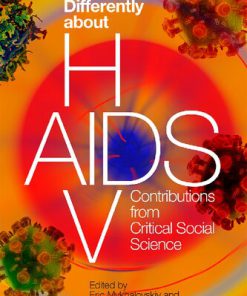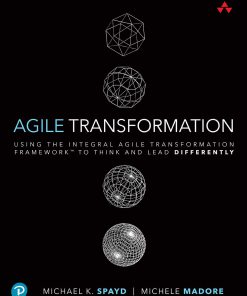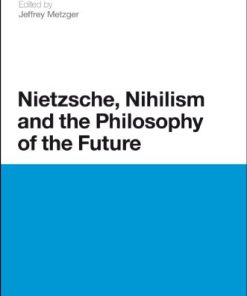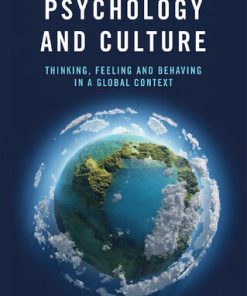The Problem of Affective Nihilism in Nietzsche: Thinking Differently Feeling Differently 1st edition by Kaitlyn Creasy ISBN 3030371333 9783030371333
$50.00 Original price was: $50.00.$25.00Current price is: $25.00.
The Problem of Affective Nihilism in Nietzsche: Thinking Differently, Feeling Differently 1st edition by Kaitlyn Creasy – Ebook PDF Instant Download/Delivery: 3030371333, 978-3030371333
Full download The Problem of Affective Nihilism in Nietzsche: Thinking Differently, Feeling Differently 1st Edition after payment
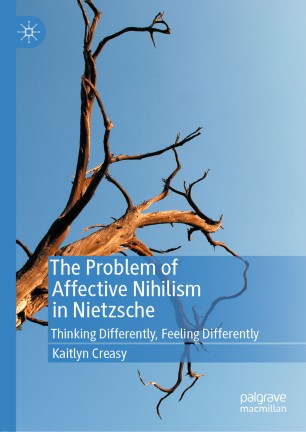
Product details:
ISBN 10: 3030371333
ISBN 13: 978- 3030371333
Author: Kaitlyn Creasy
The Problem of Affective Nihilism in Nietzsche: Thinking Differently, Feeling Differently 1st Table of contents:
1. Introduction
- Overview of the central themes and questions that will be addressed in the text, focusing on nihilism, particularly as explored by Nietzsche, and its relation to life-denial and affective nihilism.
2. Nietzsche’s Genealogy of Nihilism
-
a. Introduction
An introductory explanation of Nietzsche’s genealogical approach to nihilism. -
b. European Nihilism: A Genealogy
Tracing the historical roots and development of nihilism in Europe, particularly how it evolved in relation to religion, philosophy, and culture. -
c. European Nihilism and the Structure of Life-Denial
Analyzing how nihilism in Europe manifests as a denial of life, and how it structures belief systems and worldviews. -
d. Conclusion
Summarizing the key points from Nietzsche’s genealogical approach and its implications for understanding nihilism today.
3. Nihilism as Life-Denial
-
a. Introduction
Overview of nihilism as a denial of life, focusing on both its philosophical and practical implications. -
b. Life-Denial as a Cognitive Phenomenon: Beliefs, Judgments of Life, and Epistemic Practices
-
i. Belief in a “Beyond”
Discussing how belief in an afterlife or transcendence contributes to life-denial. -
ii. Belief in a Higher Purpose
Exploring how the idea of a higher, often external purpose can diminish the value of life itself. -
iii. Belief in Objectivity or “Knowledge as Such”
Analyzing the role of objectivity and detachment in denying the importance of lived experience. -
iv. Life-Denying Morality: The Harm of “The Good”
Examining how certain moral systems (particularly those focused on “the good”) can negate life’s value. -
v. Life-Denying Epistemic Orientations and Practices
Investigating how certain epistemic practices (such as abstract theorizing) may detach individuals from real, embodied life.
-
-
c. Life-Denial as Socio-Cultural: Institutions and Ideologies
How societal structures, institutions, and ideologies foster life-denial. -
d. Life-Denial as Psychophysiological: Drives, Affects, and the Will
The relationship between nihilism, drives, affects, and the suppression of the will to live. -
e. Conclusion
Summarizing the ways in which nihilism operates as life-denial in various domains.
4. Before Affective Nihilism: Understanding Affect
-
a. Introduction
Introducing the concept of affect and its relevance to the discussion of nihilism. -
b. Affect in Nietzsche
-
i. Affects as Inclinations and Disinclinations (With a First-Personal, Phenomenal Character) That Produce Beliefs, Experience, and Behavior
Understanding affect as a fundamental part of human experience that influences our worldview and actions. -
ii. Affects as Drive-Induced Evaluative Orientations
Explaining how drives shape our evaluative judgments and how these link to affect. -
iii. Second-Order Affects and the Transpersonal Nature of Affect
Analyzing higher-order affects and their potential to influence collective human life and culture.
-
-
c. Conclusion
Concluding thoughts on the role of affect in understanding nihilism and its implications.
5. The Problem of Affective Nihilism
-
a. Introduction
Introducing the concept of affective nihilism and its significance. -
b. Affective Nihilism
-
i. On the Problem of Affective Nihilism
Outlining the problem posed by affective nihilism and its consequences for individuals and societies. -
ii. The Psychophysiology of Affective Nihilism
Investigating the physical and psychological aspects of affective nihilism. -
iii. The Transpersonal Dynamics of Affective Nihilism
Discussing how affective nihilism influences collective dynamics and social structures.
-
-
c. Conclusion
Summary of the key aspects of affective nihilism and the challenges it presents.
6. Affective Nihilists, Weak Agents
-
a. Introduction
An introduction to how affective nihilism affects personal agency and strength of will. -
b. Affective Nihilists, Weak Agents: Nihilism as a (Variety of) Psychological States
-
i. N1: Affective Nihilism Involving Drive Suppression
Describing one form of affective nihilism as the suppression or denial of drives and desires. -
ii. N2: Affective Nihilism Involving the Fragmentation of the Will
Describing another form of affective nihilism characterized by a fragmented sense of self and willpower.
-
-
c. Conclusion
Concluding thoughts on the ways in which affective nihilism leads to weak agency.
7. Who is Nietzsche’s Affective Nihilist? Thinking Cognitive Nihilism, Affective Nihilism, and Their Interplay
-
a. Introduction
Introduction to the interplay between cognitive and affective nihilism. -
b. The Scope of Affective Nihilism in Nietzsche
Exploring how Nietzsche understood and articulated affective nihilism in his work. -
c. A Crucial Interplay: The Relationship Between Affective and Cognitive Nihilism
Examining how affective and cognitive forms of nihilism interact and influence each other. -
d. Conclusion
Concluding thoughts on the relationship between the two forms of nihilism and their combined effect.
8. Overcoming Affective Nihilism
-
a. Introduction
Overview of the strategies for overcoming affective nihilism. -
b. Affective Nihilism, Redux: Getting the Problem in Full View
Re-examining the problem of affective nihilism and its deeper implications. -
c. Overcoming Affective Nihilism: What It Isn’t
Clarifying misconceptions about how to overcome affective nihilism. -
d. Overcoming Affective Nihilism: What It Is
Outlining effective strategies for overcoming affective nihilism.-
i. Psychophysiological and Affective Features
Focusing on the psychophysiological aspects of overcoming nihilism. -
ii. Characteristic Beliefs, Judgments, and Epistemic Tendencies Manifest by the Individual with an Attitude of Radical Affirmation
Describing the changes in belief and judgment required to affirm life. -
iii. An Ability to Maintain the Conditions of One’s Flourishing
Highlighting how radical affirmation allows for the flourishing of life.
-
-
e. Nietzschean Strategies for Overcoming Affective Nihilism
-
i. Experimentation and the Production of Affect
Using experimentation as a method for producing new, life-affirming affects. -
ii. Self-Knowledge as Self-Narration
Understanding oneself through the lens of self-narration and personal story. -
iii. Self-Genealogy: Learning to Master the Affects and Creating the Conditions of One’s Flourishing
Nietzsche’s approach to self-overcoming through self-examination and the creation of life-affirming conditions.
-
-
f. Conclusion
Summary of the methods for overcoming affective nihilism and achieving a flourishing life.
People also search for The Problem of Affective Nihilism in Nietzsche: Thinking Differently, Feeling Differently 1st:
the problem of affective nihilism in nietzsche
what’s wrong with nihilism
effects of nihilism
the affirmation of life nietzsche on overcoming nihilism
why nihilism is wrong
Tags:
Kaitlyn Creasy,Problem,Affective,Nihilism,Nietzsche,Thinking,Differently,Feeling,Differently 1st
You may also like…
Uncategorized
Politics & Philosophy - General & Miscellaneous Philosophy
Nietzsche Nihilism and the Philosophy of the Future 1st Edition Jeffrey Metzger
Relationships & Lifestyle - Psychological Self-Help
Psychology and Culture Thinking Feeling and Behaving in a Global Context 2nd Edition Lisa Vaughn
Cookbooks
Computers - Computers - General & Miscellaneous
Algorithmic Thinking 2nd Edition A Problem Based Introduction Daniel Zingaro
Engineering




